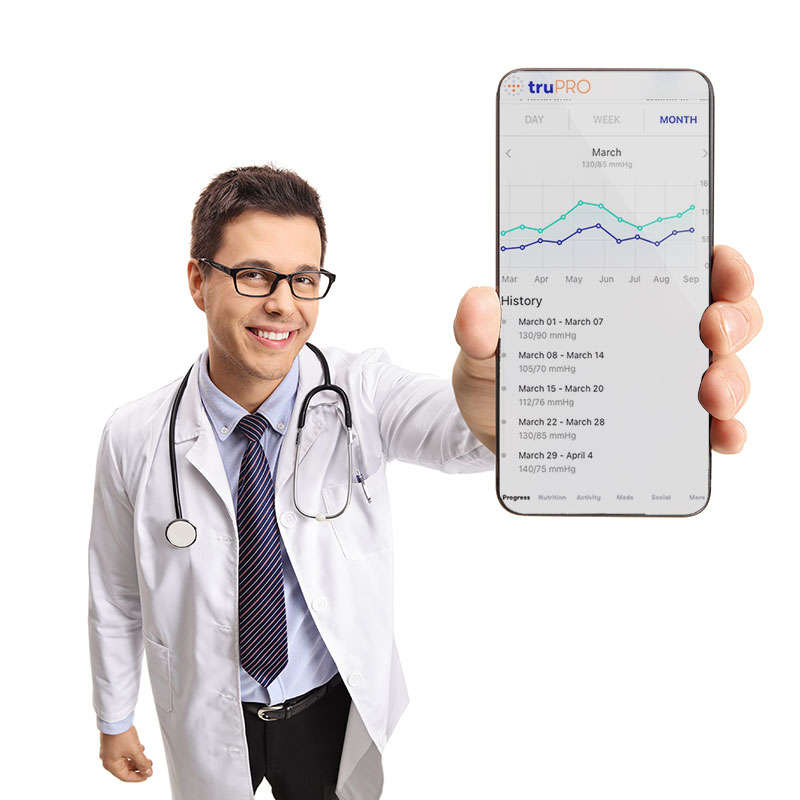What is Remote Patient Monitoring (RPM)?
Remote Patient Monitoring (RPM) refers to the collection of patient-generated health data by a patient or caregiver that is digitally stored and transmitted to a healthcare professional for review and care management or treatment plan intervention.
Click Here for more information about What is required for RPM?What is required for RPM?
- RPM requires patient consent be obtained at the time services are furnished by the auxiliary personnel for physiologic monitoring of patients with acute and/or chronic conditions, under general supervision by the billing practitioner.
- RPM must be medically necessary
- RPM must be ordered in the patient medical record
What is required for CMS?
- A provider order supporting medical necessity RPM services must be initiated during a face-to-face visit (or telehealth during the PHE) for patients not seen within the past year
- The RPM device must meet the FDA’s definition of a “medical device” (does not have to be FDA-approved, but must still meet the definition)
- The patient must be using RPM for a minimum of 16 days to bill for services (Refers to CPT 99453 & 99454) Mandatory interactive communication with the patient (Refers to CPT 99457 &99458)What is required for CMS 1.
CPT 99453- Service Initiation
Remote monitoring of physiologic parameter(s) (e.g., weight), initial; set-up and patient education on use of equipment
✔One time code only, one or multiple equipment.
✔Can only bill after the first 16 days of reading in 30 days occurred
CPT 99454- Data Transmission
Remote monitoring of physiologic parameter(s) (e.g., weight, blood pressure, pulse oximetry, respiratory flow rate). Monthly data transmission
✔One time code per month with one or multiple equipment used.
✔Can only bill after the 16 days of reading in 30 days occurred
CPT 99457- Treatment Management
Remote physiologic monitoring treatment management services, clinical staff/physician/other qualified health care professional time in a calendar month requiring interactive communication with the patient/caregiver during the month initial 20 minutes
✔One time per month
✔One or multiple equipment used
✔Can Not bill without a phone call to patient or caregiver
CPT 99458- Treatment Management
Remote physiologic monitoring treatment management services, clinical staff/physician/other qualified health care professional time in a calendar month requiring interactive communication with the patient/caregiver during the month additional 20 minutes
✔Unlimited times per month
✔One or multiple equipment used
✔Can Not bill without a phone call to patient or caregiver
CMS 2020 Final Rule on RPM “Incident to” billing of CPT Code 99457
When the CPT codes for RPM were first created in 2018 CMS stated that RPM services could only be delivered by a physician and not by an “auxiliary personnel incident to the practitioner’s professional services.” An “incident to” service is defined as a service rendered under the supervision of a physician and/or qualified health care professional and then billed to Medicare in the name of the physician and/or qualified healthcare professional.
In April of 2019, the CMS stated that it would allow for “incident to” billing by auxiliary personnel if they were under direct supervision, which meant they were in the same building at the very same time. This new rule allows for general supervision instead of the direct supervision that was required prior to April of 2019; thus, CPT codes 99457 and 99458 can be billed under general rather than direct supervision.
General supervision allows physicians to use telemedicine to conduct general supervision with their auxiliary staff. Furthermore, this rule states that the physician and/or other qualified healthcare professional who is supervising auxiliary staff does not have to treat the patient receiving RPM services, yet the supervising physician/qualified healthcare professional can bill Medicare for the “incident to services”.
This new rule extends the flexibility of the RPM services and does not exclusively put the burden solely on the physician and/or qualified healthcare professional. This rule has changed the landscape of the current business models being used for RPM services and will continue to enhance them greatly.
New RPM Code for Extra 20 Minutes
The CMS also created a new rule that will allow for billing after the first 20 minutes of RPM services, which is currently billed under CPT 99457. Patients who received an additional 20 minutes of RPM services and require interactive communication with clinical staff/physician/qualified healthcare professional can be billed under CPT code 99458. It’s estimated that reimbursement will be at the rate of approximately $43 per month.
In conclusion, these new rules and CPT codes demonstrate that the CMS recognizes the importance of RPM services and its power to minimize the gaps in our current healthcare system. All patients can benefit from these services and these changes will certainly increase providers’ chances to adopt a medical model that includes RPM services.












